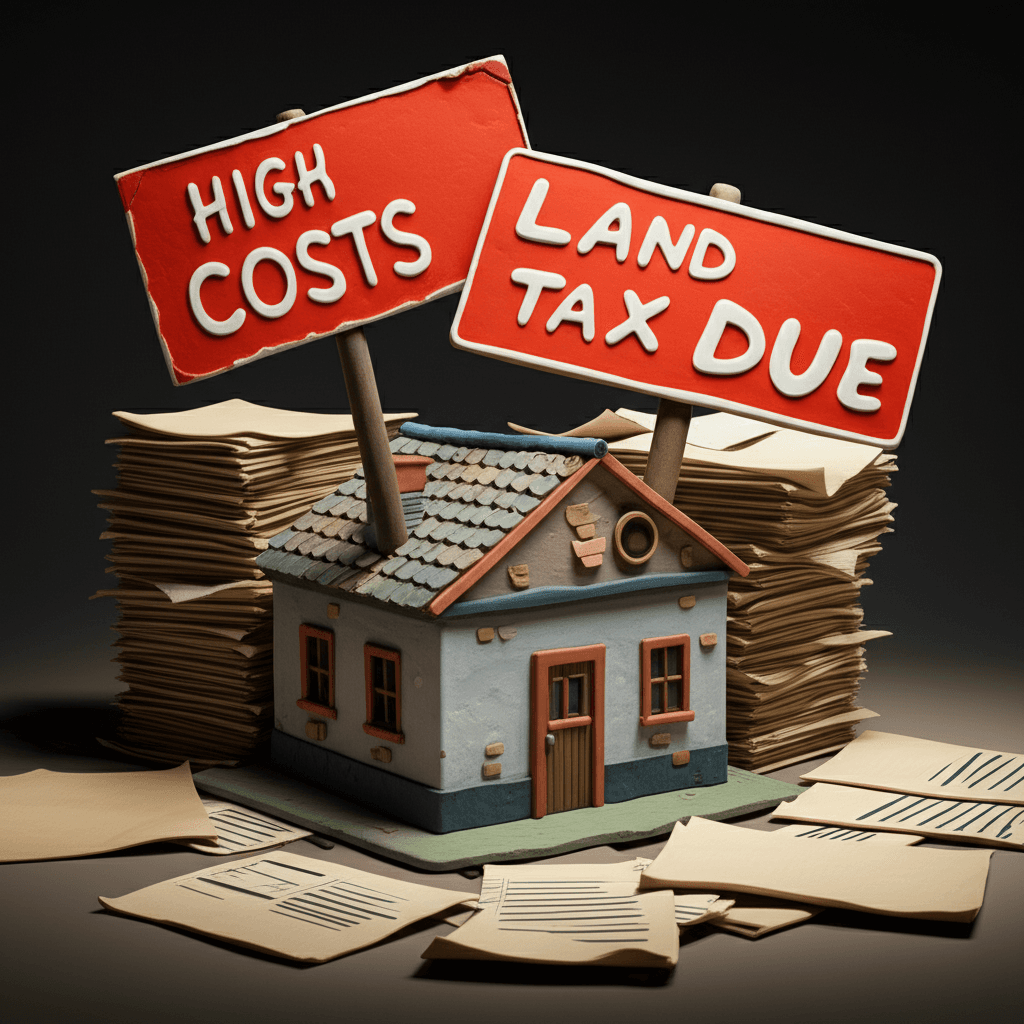Buying Property in a Trust vs. Your Personal Name: An Australian Guide
Uncover the critical differences in asset protection, tax implications, and costs to make the right investment decision in Australia.

Introduction to Property Ownership Structures
When purchasing property in Australia, one of the most crucial yet often overlooked decisions is the ownership structure. Should you buy in your personal name or establish a trust? This choice has significant long-term implications for your taxes, asset protection, and overall financial strategy. While many first-time buyers default to purchasing in their own name, understanding the mechanics of a trust is essential for any serious investor.
A trust is a legal structure where a person or a company (the trustee) holds and manages assets on behalf of other people (the beneficiaries). Essentially, it separates the legal ownership from the beneficial ownership, allowing you to control an asset without directly owning it. This guide will break down the advantages and disadvantages to help you make an informed decision.
Disclaimer: The information in this article is for general guidance only and does not constitute financial or legal advice. Please consult with a qualified accountant and solicitor to discuss your specific circumstances before making any decisions.
The Key Advantages of Buying Property in a Trust
For many investors, the benefits of a trust structure centre on protection and financial flexibility. Here are the primary reasons to consider this path.
1. Superior Asset Protection A trust is a separate legal entity from you as an individual. This distinction is its most powerful feature. If you face legal action or creditors pursue you for personal debts, the assets held within the trust are generally protected because they are not legally yours. This 'corporate veil' provides a crucial layer of security for your property portfolio, shielding it from personal financial risks.
2. Strategic Tax Planning and Flexibility A trust offers significant flexibility in distributing income and capital gains generated by the property. The trustee can decide which beneficiaries receive the profits each financial year. This allows you to distribute income to family members in lower tax brackets, such as a spouse with a lower income or adult children. By optimising distributions, you can significantly lower the overall tax paid on your investment returns, maximising the money you keep.

The Disadvantages and Costs of a Trust Structure
While the benefits are compelling, trusts are not a one-size-fits-all solution. They come with their own set of costs and complexities that must be carefully weighed.
1. Higher Setup and Ongoing Costs Establishing a trust involves legal and setup fees that are much higher than simply buying in your personal name. Furthermore, a trust must lodge its own annual tax return. This means you'll face increased accounting fees each year, in addition to your personal tax return, which can eat into your investment's profitability, especially in the early years.
2. The Land Tax Disadvantage This is a critical drawback that often surprises investors. In many Australian states, individuals are entitled to a tax-free threshold for land tax, meaning you don't pay any land tax until the total value of your land holdings exceeds a certain amount. However, most trusts are not eligible for this threshold. For example, in New South Wales, a trust would pay land tax from the very first dollar of land value, potentially resulting in a tax bill of thousands of dollars per year that an individual owner would be exempt from.
3. Inability to Distribute Losses If your investment property is negatively geared or has depreciation benefits, these losses can be used to offset your personal taxable income if you own it in your own name. In a trust, these losses cannot be distributed to beneficiaries. They are trapped within the trust and can only be used to offset future profits generated within that same trust, limiting their immediate tax benefit.
4. Navigating Finance and Mortgages Securing a home loan for a property held in a trust can be more complex and time-consuming. Lenders require more extensive paperwork and due diligence, which can slow down the application process. This administrative hurdle can be a significant disadvantage in a fast-moving property market where speed and simplicity are key.

Conclusion: Making the Right Choice for Your Situation
There is no single correct answer to whether you should buy property in your personal name or under a trust. The decision hinges on your individual financial situation, your long-term investment goals, and your appetite for administrative complexity.
Buying in a Personal Name: Simpler, cheaper, and allows you to utilise negative gearing benefits against your income immediately. However, it offers no asset protection.
Buying in a Trust: Offers excellent asset protection and tax flexibility but comes with higher costs, potential land tax issues, and more complex financing.
A strategic approach often involves seeking professional guidance to structure your portfolio effectively. The right structure is a cornerstone of a successful investment journey, and tools that provide a guided buying process can be invaluable in navigating these choices.
Making the right ownership choice is a foundational step in building a successful property portfolio. To further refine your strategy with market insights and suburb analysis, explore the HouseSeeker Real Estate Analytics hub and empower your next purchase with data.
Frequently Asked Questions
What is the primary advantage of buying a property in a trust?
The single biggest advantage is asset protection. By holding the property in a separate legal entity, you shield it from personal liabilities, lawsuits, or creditor actions, which is a key consideration for long-term wealth preservation.
Do I pay more land tax if I buy in a trust?
In most cases, yes. Trusts are typically not eligible for the tax-free land tax threshold available to individual owners in many states. This means you could be liable for land tax from the first dollar of your property's land value, leading to a significant annual expense.
Can a trust help reduce my income tax?
Yes, a trust can be an effective tool for tax minimisation. It allows the trustee to distribute rental income and capital gains to beneficiaries in lower tax brackets, reducing the overall tax liability of the family unit. However, this must be weighed against the inability to distribute losses.
